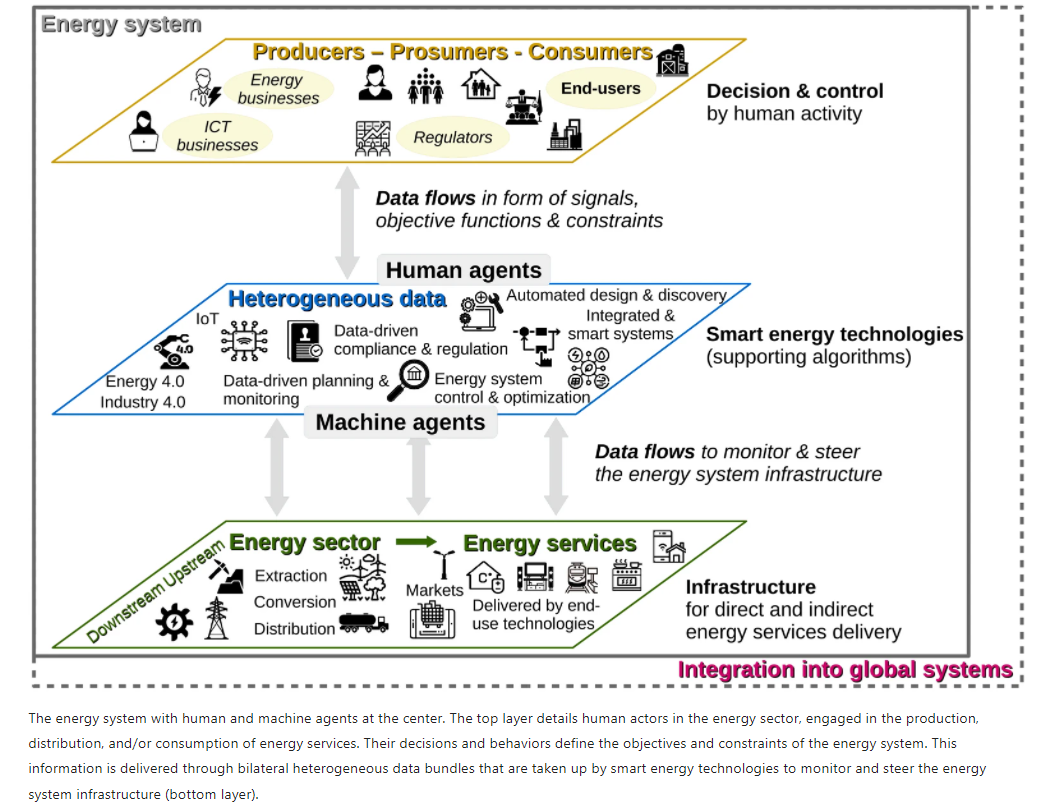The paper was published online in Nature Scientific Reports. It is the first study to assess and document FAIR data practices in the energy domain.

With the continued digitization of the energy sector, the problem of sunken scholarly data investments and forgone opportunities of harvesting existing data is exacerbating. It compounds the problem that the reproduction of knowledge is incomplete, impeding the transparency of science-based targets for the choices made in the energy transition. The FAIR data guiding principles are widely acknowledged as a way forward, but their operationalization is yet to be agreed upon within different research domains.
In the paper recently published online on Scientific Reports, the EERAdata authors comprehensively tested FAIR data practices in the low carbon energy research domain. 80 databases representative for data needed to support the low carbon energy transition were screened. Automated and manual tests were used to document the state-of-the art and provide insights on bottlenecks from the human and machine perspectives. To conclude they proposed action items for overcoming the problem with FAIR energy data and suggested how to prioritize activities.
Discussion
The results disclose the difficulty of translating the FAIR guidance principles into domain-specific applications, as current FAIR data practices in the energy domain are still in its infancy. Although the low carbon energy community has started efforts of FAIRifying energy data, platforms and tools are not yet fit to be integrated into the workflows of research teams. Most importantly, machine-actionability is not given at large.
This study is the first to assess and document FAIR data practices in the energy domain. We test 80 databases that are representative of data flows in the energy system with the help of manual and machine-based assessments. The comparison offers several novel insights, suggesting how to move forward in and with the community. The authors recommend the following action items for the energy domain (in order of priority):
-
Create institutions or networks that can function beyond single project and which are responsible for defining domain-specific, machine-actionable standards. Institutional anchoring of metadata and domain-specific vocabulary can increase trust and confidence into the uptake of the work of pioneers and investments into FAIR work-flows. Another task for these institutions or networks could be to coordinate the future energy data space. This data space should serve as an entry point to FAIR data tools, workflows, and semantic web-services specific to the energy domain, besides ensuring interoperability with data spaces of other domains.
-
Our findings show that both manual, as well as automated FAIR assessment tools, lead to divergent recommendations on improving the FAIR status of databases. In order to provide the community with meaningful tools and to foster confidence in the outcome of the evaluation results, it is necessary to harmonize the tools. The FAIR Data Maturity Model put forward by the Research Data Alliance is a step forward in this direction.
-
Approach the overall lack in understanding of how to implement machine-actionability through demonstrated use cases in the energy domain. Using a simple structured dataset, a blueprint can be developed to show how to enable machine-actionability. The use case illustrates how to assign persistent identifiers to (meta)data, link to existing standards, and assign licenses and access rights. The encouragement of peer-reviewed publications of such blueprints also addresses the incentive problem for investing into FAIR research data.
-
Harvest low-hanging fruits by placing emphasis on the implementation of persistent identifiers for (meta-)data. Several repositories are offering these services.
-
Promoting and educating FAIR energy data stewards. The technical expertise and the resources needed to FAIRify energy data is out of reach for energy researchers. Even if assessment tools are available to support self-assessment of research data, the cycle of developing, assessing, and improving data documentation is out of scope for daily activities. In particular, the task of FAIRifying data connected to research publications should not be outsourced to the researchers.
-
Reverse the trend to prioritize the development of (graphical) user interfaces that prohibit the access to raw data. The assessments revealed that these interfaces are designed for human users only and are hardly machine-actionable.
Download the paper
Cite this article
Schwanitz, V.J., Wierling, A., Biresselioglu, M.E. et al. Current state and call for action to accomplish findability, accessibility, interoperability, and reusability of low carbon energy data. Sci Rep 12, 5208 (2022). https://doi.org/10.1038/s41598-022-08774-0